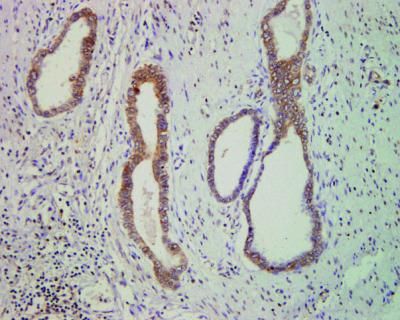Methylation signaling controls angiogenesis and cancer growth
Advertisement
A study led by researchers at Boston University School of Medicine (BUSM) demonstrates a new mechanism involving a signaling protein and its receptor that may block the formation of new blood vessels and cancer growth. The findings are published in Science Signaling.
Angiogenesis creates new blood vessels in a process that can lead to the onset and progression of several diseases such as cancer and age-related macular degeneration.
Vascular endothelial growth factor (VEGF) is a signaling protein produced by damaged cells, which binds to one of its receptors VEGFR-2, located on the surface of blood vessel cells. Once VEGF is bound to its receptor, it is activated and sends a biochemical signal to the inside of the blood vessel cell to initiate angiogenesis. There are currently multiple Federal Drug Administration-approved medications that target this process. However these medications are limited by insufficient efficacy and the development of resistance.
The researchers demonstrated that a biochemical process called methylation, which can regulate gene expression, also affects VEGFR-2, and this can lead to angiogenesis. Using multiple methods, the researchers were able to interfere with the methylation process of VEGFR-2 and subsequently block angiogenesis and tumor growth.
"The study points to the methylation of VEGFR-2 as an exciting, yet unexplored drug target for cancer and ocular angiogenesis, ushering in a new paradigm in anti-angiogenesis therapy," said Nader Rahimi, PhD, associate professor of pathology, BUSM, who served as the study's senior investigator.
















































